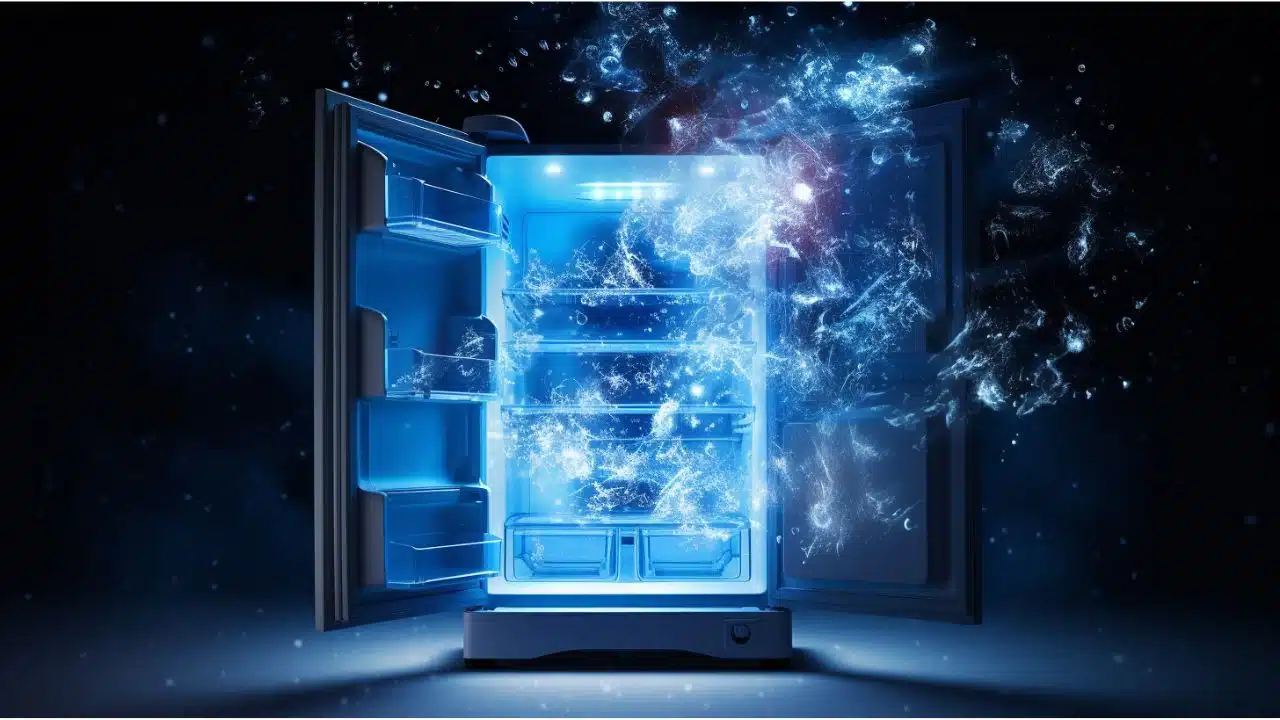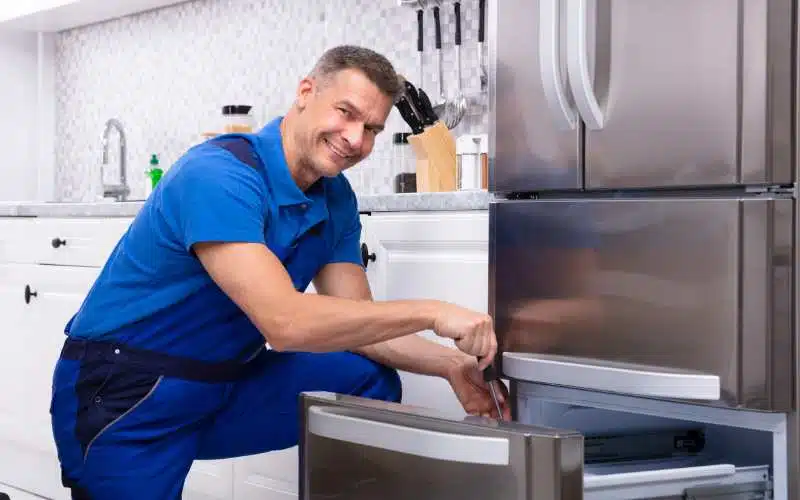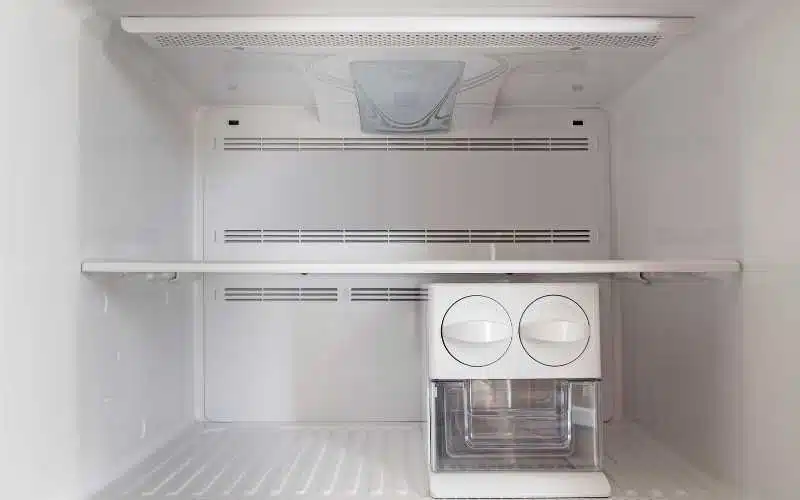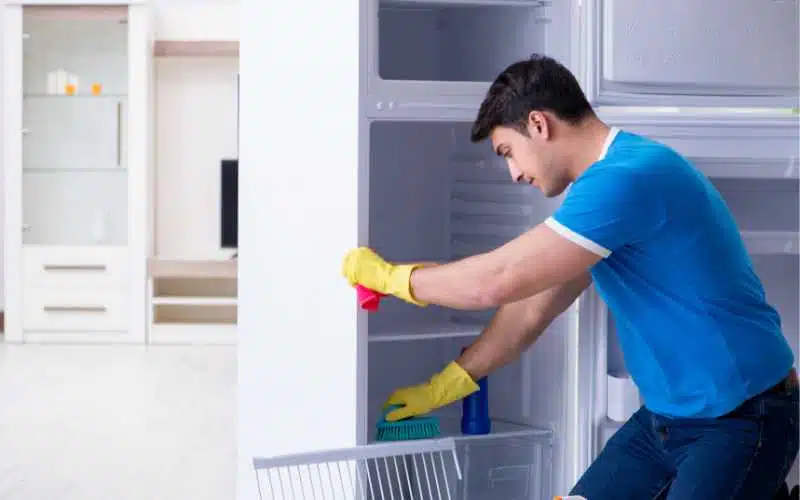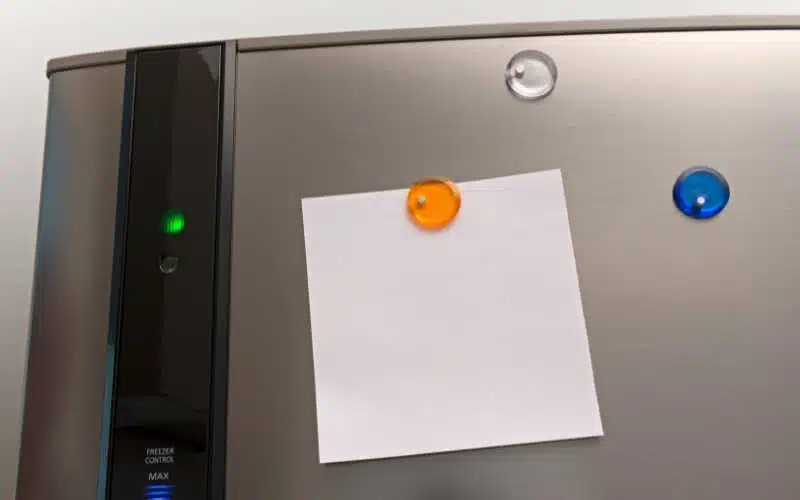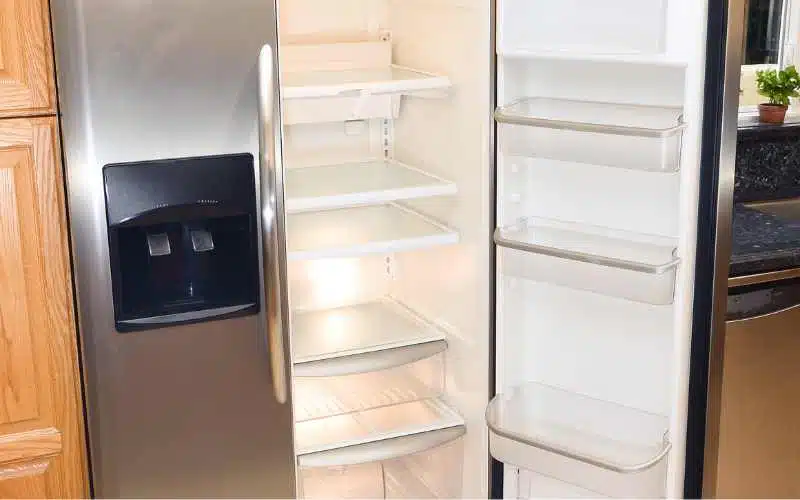It would be perfect for you if your refrigerator had an electrical outlet rather than a regular outlet.
However, since the refrigerator’s location is different from other appliances in the house, the refrigerator is plugged into its outlet most times.
So if you need to plug it into a regular outlet for a reason, can your refrigerator be plugged into a regular outlet?
In the real sense, refrigerators do not need a particular outlet. You could plug your refrigerator into a standard outlet as long as it has a voltage of 110-120 volts and the socket has three prongs, although it would still be better if your refrigerator were on its own.
Can You Plug a Mini Fridge into a Regular Outlet?
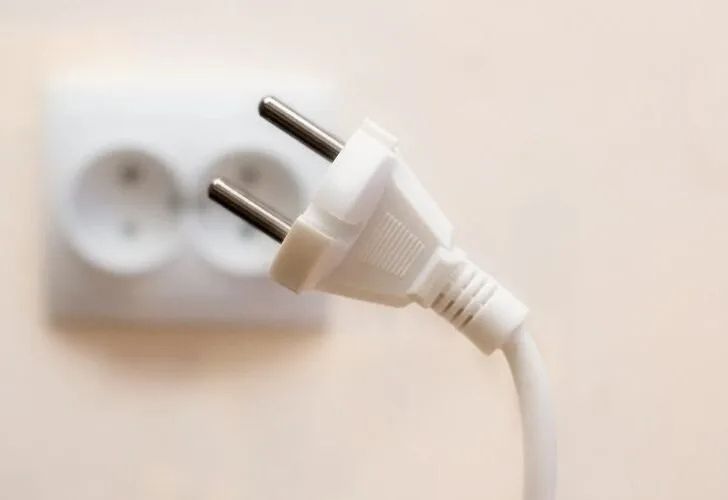
Mini fridges are convenient little appliances you can have in your home, and if you are not an expert on electrical appliances and functions, you might think loading your outlet up is not a big deal.
However, many dangers come with overloading your outlets, so ensure that you read the manual before making any move.
It would be best for you to plug your refrigerator into a dedicated circuit, which means you would need to plug just your mini-refrigerator into that circuit; in other words, you have dedicated that circuit to your mini-refrigerator.
The dangers of overloading your circuit breaker are very extreme, and you should never take the risk;
some of these dangers include;
#1. Circuit Breaker Trip
The circuit breaker trip is one of the most common scenarios when overloading an outlet.
The circuit breaker is a function that helps you to safeguard your electrical system by shutting off the flow of electricity to a particular circuit when it is taking on too much power.
If your breaker trips, you would need to fix it immediately to prevent cases of electrical fires and also damage to your appliance.
#2. Electrical Fires
An electrical fire occurs when you overheat your circuit, then it begins to overheat and spark, prompting flames.
These fires are most likely to happen if your circuit breaker trips and you can no longer be able to safeguard your electrical system or you have an older model of the electrical system that doesn’t have these safeguards.
To prevent the occurrence of a fire outbreak, you should ensure that you have a good circuit breaker and if your electrical systems are outdated, make sure you update them and include these safeguards.
#3. Power Outage
Some electrical outlets have safeguards that apply to the entire system, not just individual appliances.
For example, in cases where it notices that the circuit is overloaded, it cuts off the electrical power to the entire home.
This scenario is a good thing, but it also means that you lose power, which is not so good.
#4. Damage to Your Appliance
One of the significant damage that overloading your outlets can cause is that it can cause irreparable damage to your appliances.
Sometimes, when you overload your electrical outlets, it doesn’t affect the electrical system and causes irreparable damage to your appliances.
What Kind Of Outlet Should a Refrigerator Be Plugged Into?
Connecting a refrigerator to an outlet with a three-prong plug would be best. The plugs have two square plugs and a round one that fits perfectly into the standard household outlet.
So when you connect the plug to an outlet, the square prongs connect to the standard and neutral wires while the round prongs connect to the ground wire in the electrical box.
Many refrigerators can work perfectly with a 100-120 volts electrical outlet. However, many large appliances use outlets with three prongs, so you have to ensure that it all fits.
Although you can plug your refrigerator into any standard outlet with three prongs, you should ensure that you do not plug any other appliance alongside it, not that you can’t, but to be on the safer side, you shouldn’t.
#1. Can Refrigerators Share Outlets?
It would help if you connected every outlet in the home to a circuit that can handle a certain amount of voltage and amperes.
For example, if you plug in a device with 50-60v in a 120v outlet, it would eventually blow up, so you should ensure that the outlet is compatible with the appliance.
These days, many refrigerators can work on lower voltages, which is quite an improvement, but during its use, its current might spike up due to the effect of the startup current.
What Would Happen If You Plug a Refrigerator Into A Regular Outlet?
Plugging a refrigerator into a regular outlet is possible, but you have to ensure that the appliance’s voltage is compatible with that of the electrical outlet.
Also, you would need a circuit breaker to regularize your power flow to prevent sparks and prevent it from causing severe problems to your refrigerator.
Finally, although a fridge can share a regular outlet with another appliance, you should ensure that the fridge is on its own because too many appliances can cause an overload.
Sharing an outlet with your refrigerator leads to consequences like;
#1. Melted Fuse
Most circuits contain fuses that run through them, and when the electrical current gets high, the strip melts and then breaks the circuit.
If this happens, your appliance will not be working until you repair the fuse.
#2. Resulting In a Tripped Circuit Breaker
When the circuit overloads, the circuit breaker trips, and you cannot be able to use it again until you reset the breaker leverage.
Sharing an outlet can be time-consuming and confusing, so using a dedicated outlet for your fridge would be better.
Apart from the refrigerator, some other appliances in the house require dedicated outlets.
These appliances include;
- Dishwashers.
- Water heaters.
- Ovens.
- Microwaves.
- Dryers.
Apart from the fridges, many other outlets can overload a circuit. So you have to be aware of the voltage of any new appliance you get before plugging it in to be on the safer side for you.
Some of these things you should take note of include;
- Checking the current and voltage of your power outlets. You can use a digital multimeter to measure the current of the voltage of your outlet but note that you can only use this device to check for DC.
- Check the manufacturers’ labels. You should always check the manufacturer’s label because it contains many valuable details you would need to know before setting up your appliances.
- If you discover that the product range is not suitable for your home, then you should please get a resistor or an inverter; any of those two would work.
Can You Plug a Refrigerator Into a 110 Outlet?
Of course, you can plug a standard fridge into outlets with 100-120 voltages as long as it Is three-pronged.
When you plug your refrigerator in, it would be better if you do not plug any other appliance in for the safety of your device.
#1. Getting More Power Outlets In the Home
If the reason why you are considering connecting other gadgets into the same outlet as your refrigerator is due to insufficient outlets, then you should get power strips.
These power strips are just multiple outlets to which you can connect multiple low-power voltages.
No matter the number of gadgets or devices you can plug into your power outlet, ensure that you follow these safety measures below for things to go smoothly;
- Do not plug devices that require dedicated circuits into your power strips. These devices would eventually pull too much power and lead to a circuit overload.
- Do not keep your power strips close to damp places. If your strip is close to damp places, there is a higher chance of it tripping or, even worse, catching fire.
- Ensure that you do not plug one power strip into another. Although this sounds like a great idea to get the most out of your power strips, it is hazardous, and your appliances might not work well when connected.
- Do not use a power strip that has heated up. Usually, manufacturers do not even make power strips to handle too much load, so using a heated-up power strip might damage your gadget and further damage the power strip.
- Always purchase power strips that come with a circuit breaker. Do this to protect your gadgets and power strips in the long run.
| Cons of Connecting a Fridge In with other Appliances | Cons of Connecting too Many Gadgets In a Power Strip |
|---|---|
| Resulting in a burnt circuit breaker | Results In a melted fuse |
| It results in a burnt appliance | Results in a tripped circuit breaker |
| It might melt the fuse | Causes damage to your appliance |
Conclusion
Suppose you are dealing with a mini-fridge rather than a regular fridge. In that case, you can share outlets to a point but do not overdo it; mini-fridges have lesser currents and voltages.
Still, in cases of bigger fridges, you should make use of dedicated outlets to prevent fire hazards and even difficulties.
